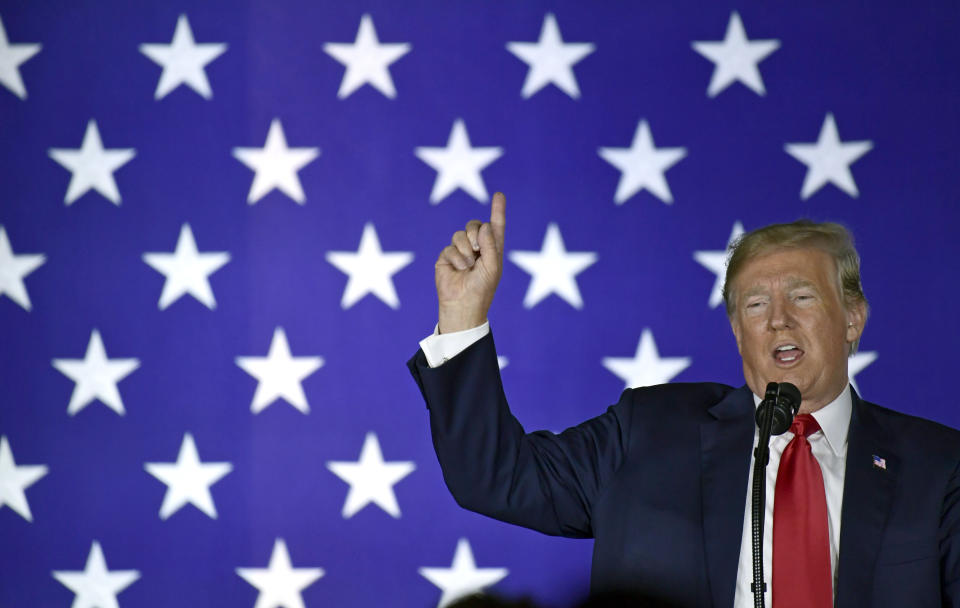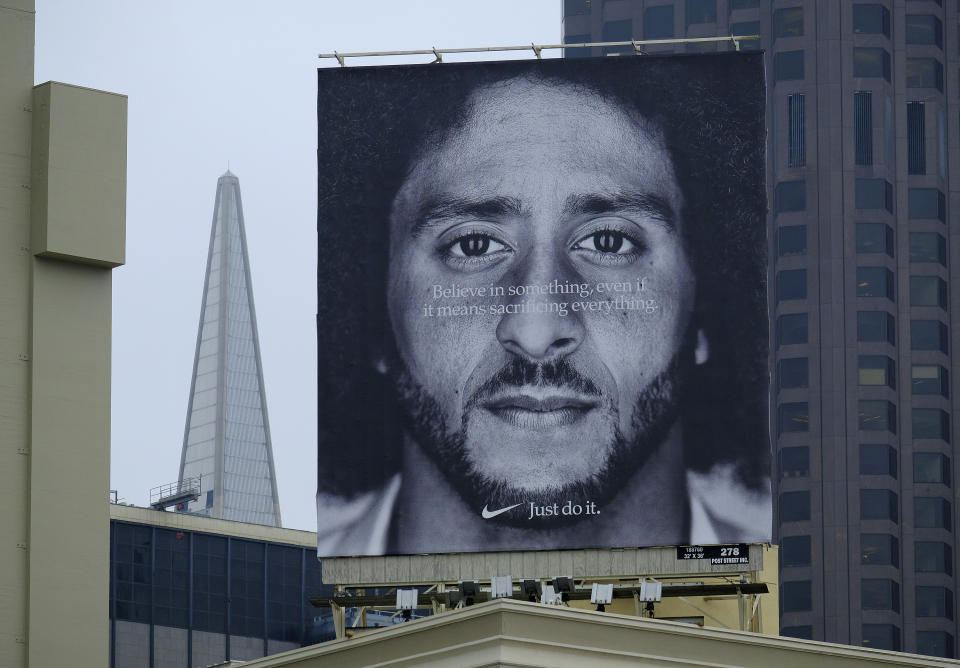Retail sales, small business optimism — What you need to know for the week ahead
A holiday-shortened week was a busy one for investors.
With tech leaders on Capitol Hill earlier this week, an anonymous op-ed in The New York Times rocking the Trump administration, and Trump on Friday saying that tariffs on an additional $267 billion of Chinese goods could be coming, the headlines were as they’ve been for most of the year — a lot.
Meanwhile, the week in economics news was capped with the August jobs report that showed hiring remains strong in the economy while wage gains are starting to perk up. There were 201,000 new jobs added to the economy in August with average hourly earnings rising 2.9% over last year, a 9-year high, and the unemployment rate holding steady at 3.9%.
Rick Rieder, BlackRock’s Chief Investment Officer of Global Fixed Income, said with a wink Friday that this was the “greatest employment report of all time.”
“Though slightly tongue-in-cheek,” Rider added, “we think today’s employment report serves as a capstone to one of the greatest labor market recovery periods of all time, with the economy creating new jobs in an impressive manner, and wage rates finally rising nicely.”

Overall, this was a tough week for stocks as the S&P 500 finished lower each of the four trading days and giving credence to the historical data which shows September tends to be the worst month of the year for investors. And while years like 2018 in which stocks are higher heading into September tend to see stocks continue rising, the bear market in emerging markets and the beating tech stocks took this week point to an environment right now where investor sentiment is simply not good.
In the week ahead, the main economic highlight will be the monthly retail sales report, expected to show sales rose 0.5% in August. Investors will also keep their eye on key inflation data as well as sentiment checks on both the U.S. consumer and the small business sector.
And on the earnings side, things will remain quiet with Kroger (KR) and Adobe (ADBE) the only members of the S&P 500 set to report results.
The coming week, then, seems likely to be more of the same — lots of political noise, a smattering of economic data confirming the U.S. economy remains in good shape, and the market action mostly taking place overseas.
Economic calendar
Monday: Consumer credit, July (+$14 billion expected; +$10.2 billion previously)
Tuesday: NFIB small business optimism, August (108.1 expected; 107.9 previously); Job Openings and Labor Turnover Survey, July (6.66 million jobs open previously)
Wednesday: Producer prices, August (+0.2% expected; +0% previously); Federal Reserve Beige Book
Thursday: Initial jobless claims (210,000 expected; 203,000 previously); Consumer price index, month-on-month, August (+0.3% expected; +0.2% previously); “Core” CPI, year-on-year, August (+2.4% expected; +2.4% previously)
Friday: Retail sales, August (+0.5% expected; +0.5% previously); Import price index, August (-0.3% expected; 0% previously); Industrial production, August (+0.3% expected; +0.1% previously); Capacity utilization, August (78.2% expected; 78.1% previously); University of Michigan consumer sentiment, September (96.8 expected; 96.2 previously)
Nike’s Kaepernick bet
Is business political?
It’s a question that since Donald Trump’s political career has become more urgent among the business class. Does your product, or must your product, represent or stand for something political? And, if so, will that make it more or less popular?
Last week, Nike (NKE) ignited a new debate and a new series of self-reflection about what consumption means. Do we, can we, and should we be making political choices based on what sneakers we buy and can we expect the companies who make these items will be doing the same?
Unveiling Colin Kaepernick as the face of its new “Just Do It” campaign — which celebrates the 30th anniversary of that slogan’s debut — would appear to mean Nike supports the causes Kaepernick does. Nike, like Kaepernick, appears to be recognizing racial inequality in the U.S. and using its platform as a brand to support an athlete that has used their platform to highlight this issue.
On Friday, Bloomberg reported that Nike’s online sales rose 27% in the four day period from Sunday through Wednesday last week. The new Kaepernick ad debuted on Monday afternoon. Over this same four-day period last year, sales dropped 2%.
This news obviates what most people also realized when Nike’s new campaign starring Kaepernick was unveiled — Nike is partnering with and supporting Kaepernick because he will help sell more Nike gear.

The reality that Nike’s goal is to sell more products and partner with athletes and causes that will advance that goal. This business-world reality must then be squared with what is ultimately a belief that the company is political.
Nike’s decision makers may indeed believe in Kaepernick’s message on a personal or political level. The company may in fact be energized by standing behind an athlete who gave up their athletic career to make a political point. But what leads a company to stand behind an athlete like Kaepernick is ultimately a belief that his presence in a major advertising campaign will make that campaign successful.
The politicization of business in the Trump era has entangled the NFL, Papa John’s, Under Armour, and Harley-Davidson among others. But none of these companies ended up at the cross section of business and politics by choice: the NFL’s players started kneeling, the CEOs of Papa John’s and Under Armour started talking, and tariffs pushed Harley-Davidson to move production of some motorcycles overseas.
By contrast, Nike has leaned into this environment and most shrewdly seen a polarizing of the American citizen — and thus the polarizing of the American consumer — as a business opportunity. And a big one.
So while the takes after Kaepernick’s campaign was unveiled argued Nike’s gambit at essentially face value — that Nike’s political stance will alienate and divide its customers — most multi-billion dollar companies don’t launch major an ad campaigns unless they are pretty sure what the outcome will be. And that outcome is selling more products.
The true politics of the situation are only yours, the consumer.
—
Myles Udland is a writer at Yahoo Finance. Follow him on Twitter @MylesUdland

 Yahoo Finance
Yahoo Finance 
